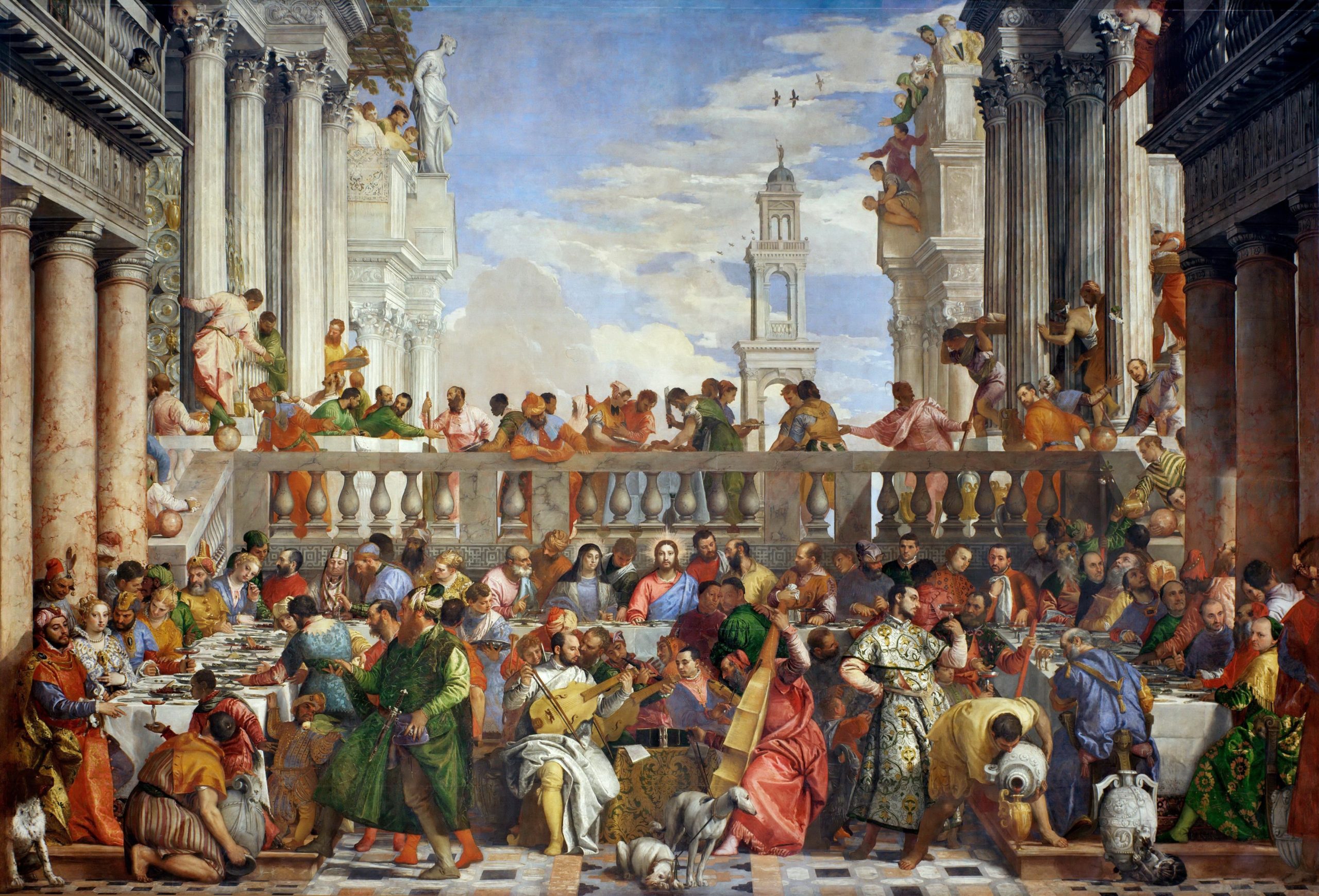As we get ready for the solemnity of the Epiphany tomorrow, we actually have one of the three traditional Epiphany stories in today’s Gospel reading. We always think about the three Kings as the Epiphany story, and that is, indeed, the first and most remembered of them. But there are two other stories of the Epiphany in our tradition. The second is what we will celebrate on Monday: the Baptism of the Lord, and the third is what we read today, the Wedding Feast at Cana.
You’ll recall that the word “Epiphany” means a “manifestation:” a manifestation of who Jesus is and what he came to do. In this story of the Epiphany, Jesus, having gathered his disciples and on the verge of his ministry, changes water into wine. But we know the symbolism of these things. Whenever we see water in the Scriptures, the Church thinks of Baptism, and whenever we see wine in the Scriptures, the Church thinks of the Eucharist, the blood of Christ. Here gallons of water, set aside for washing – another baptismal image – are miraculously turned into the best wine ever, poured out in superabundance to quench the thirst of those who gather for a feast. Clearly these are Eucharistic images for us. In this Epiphany, Jesus is revealed as the One who provides life-giving blood, the best wine ever, for all those who are baptized, all those who follow him in faith.
What we need to take from this Epiphany story is that God wants us to be Epiphany as well. God wants to use us in some way to reveal his love and grace to others. It doesn’t have to be a big and incredible experience. It might just be doing, as Saint Therese of Liseaux used to say, little things with great love. Then others can see Christ at work in you and me. Then we can be Epiphany and shine the bright light of Christ’s love in a world that is very dark and ponderous and weary. How do we do that? Mary’s instruction is all that we need to hear: “Do whatever he tells you.”
